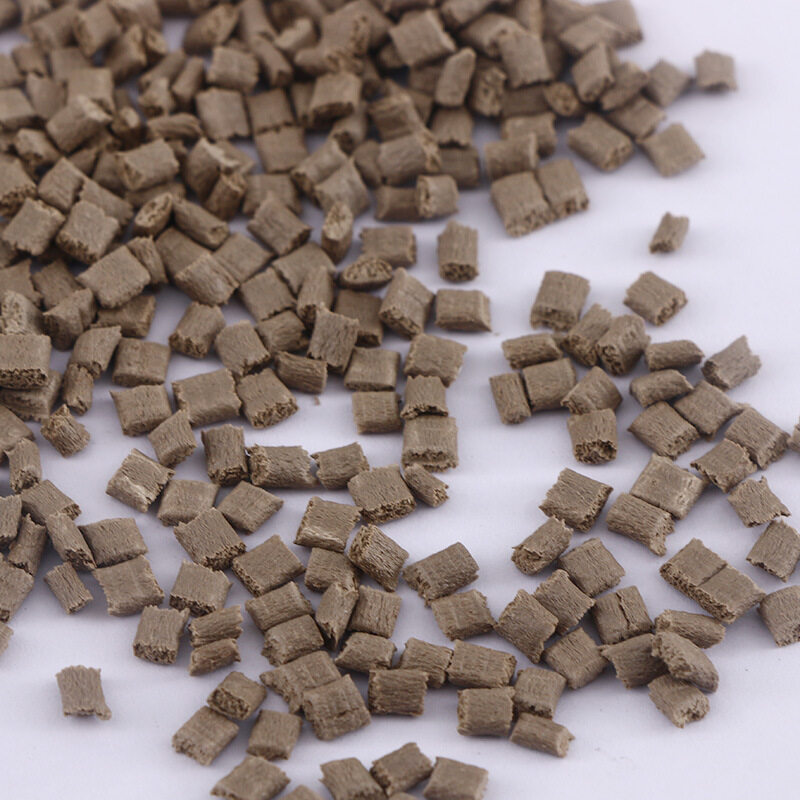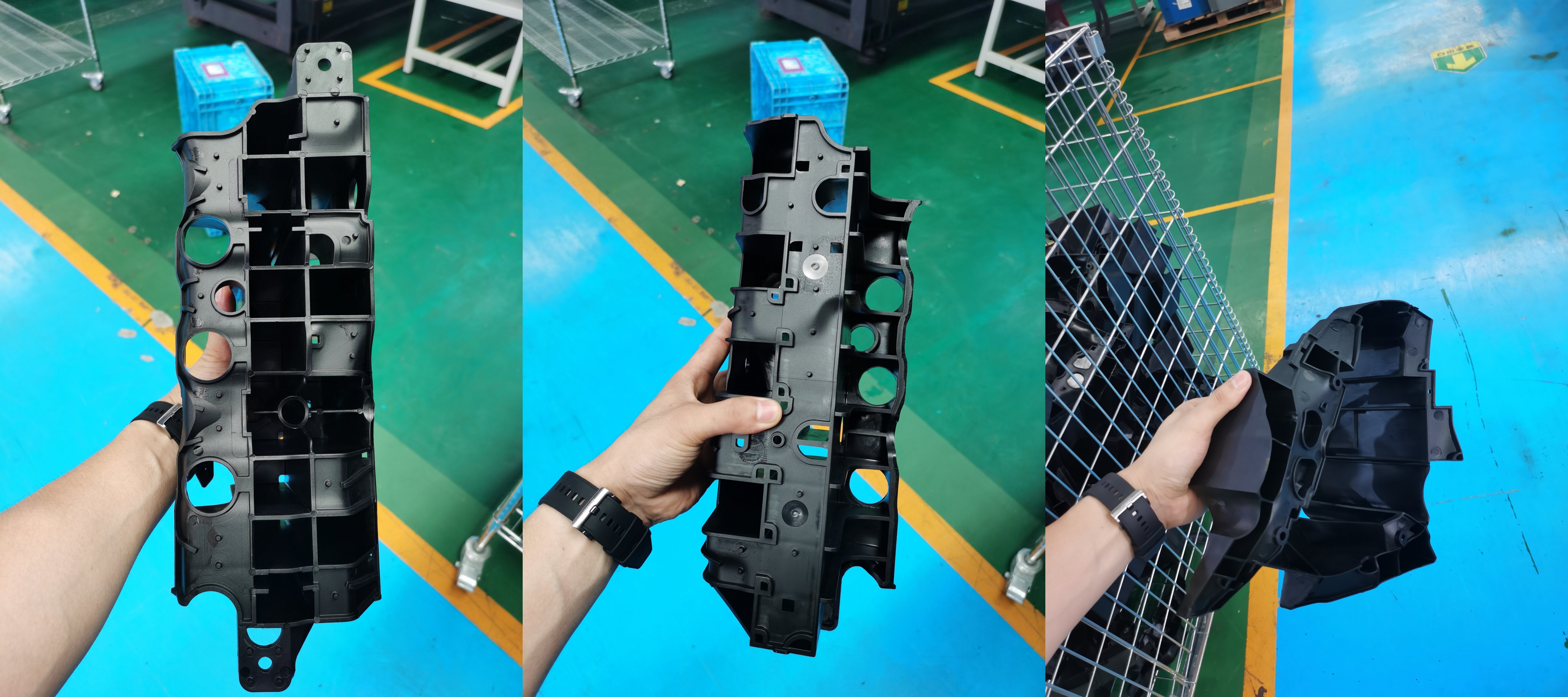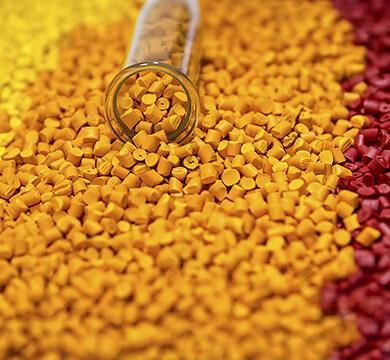Erreur de format d'e-mail
emailCannotEmpty
emailDoesExist
pwdLetterLimtTip
inconsistentPwd
resetAccountPassword
forTheAccount
pwdLetterLimtTip
inconsistentPwd
resetSuccess
resetSuccessTips
login

Offer Technical Support and Customized Solutions
The company is committed to creating new and improved plastic materials to meet the evolving demands of the market.

Breaking Barriers: How PPS Plastic Redefines Possibilities in Injection Molding
2024-01-31 11:02:44
Introduction:
As an engineering modified plastic granules manufacturer, we understand the importance of using high-performance materials in various industries.One such material that stands out for its exceptional performance is Polyphenylene Sulfide (PPS). PPS is a thermoplastic specialty engineering plastic that offers excellent heat resistance, chemical resistance, electrical properties, flame retardancy, and superior mechanical strength. In this blog, we will explore the advantages of PPS (Polyphenylene Sulfide) material and its applications in engineering.
(If you want to learn more about TOPONEW PPS Plastic Material, please click: PPS Compound )
1. Excellent Thermal Resistance:
PPS is renowned for its exceptional heat resistance properties. With a short-term heat resistance of up to 260°C and long-term usability between 200-240°C, PPS surpasses many other thermoplastics in this aspect. This makes it suitable for applications that require prolonged exposure to high temperatures.
2. Chemical Resistance:
PPS exhibits remarkable resistance to chemicals, making it highly suitable for applications where exposure to acids, alkalis, and salts is expected. It is known to resist most solvents below 200°C, except for chlorinated biphenyls and oxidizing agents. This chemical resistance ensures the longevity and reliability of PPS components.
3. Superior Mechanical Properties:
PPS exhibits high rigidity and excellent mechanical properties, making it a preferred choice in engineering materials. With the addition of glass fiber reinforcement, PPS can significantly enhance its impact strength, increasing it up to three times.
Additionally, its flexural modulus can reach up to 12.6 GPa, making it one of the stiffest engineering plastics available.
4. Flame Retardancy:
PPS is inherently flame retardant, with an oxygen index exceeding 44%. Even at a thickness of 0.8mm, pure PPS can achieve a UL-94V-0 rating, making it suitable for applications where fire safety is crucial.
5. Electrical Performance:
PPS exhibits outstanding electrical properties, with low dielectric constant and tangent loss compared to other engineering plastics. It maintains stable electrical performance over a wide range of frequencies and temperatures. PPS is commonly used as an electrical insulation material, with its usage accounting for approximately 30% in this field.
6. Other Advantages:
PPS offers additional advantages such as low molding shrinkage (approximately 0.3%), low water absorption (approximately 0.02%), good wear resistance, and excellent resistance to creep under load. It also possesses self-lubricating properties, further enhancing its performance in various applications.
Applications:
PPS can be modified through methods such as fiber reinforcement, mineral filling, PTFE enhancement, and toughening to develop high-performance PPS materials. These materials find extensive applications in various industries, including:
1. Automotive Components: PPS is widely used in the automotive industry for manufacturing components in the three-electric systems (motor, control, and battery). Its excellent electrical insulation properties, chemical resistance, and high-temperature stability make it suitable for connectors, coil frames, speed sensors, motor housings, lithium battery components, and more.

2. Engine Parts: PPS is commonly used for manufacturing engine components such as intake manifolds, throttle valves, oil pumps, and exhaust system parts. Its ability to withstand high temperatures and chemical corrosion, coupled with sufficient strength and rigidity, makes it ideal for demanding engine environments.
3. Thermal Management Systems: PPS is an excellent choice for components in thermal management systems. It can maintain its mechanical properties at high temperatures, exhibits excellent resistance to antifreeze (ethylene glycol), and has low moisture absorption, ensuring dimensional stability. Typical applications include electric water pumps, pump rotors, pump impellers, pump housings, thermostats, and inlet/outlet ports.
4. Fuel Systems: PPS materials are used in automotive fuel systems for manufacturing fuel filters, fuel injectors, fuel pipes, tank components, and fuel pumps. They can resist chemical corrosion from gasoline and diesel while maintaining stability.
5. Brake Systems: High-performance PPS materials are suitable for manufacturing critical components in brake systems, such as brake fluid pipes and connectors. These components need to withstand the chemical effects of brake fluid and maintain performance under high-temperature conditions.
Conclusion:
PPS material offers a wide range of advantages, including excellent mechanical properties, flame retardancy, thermal resistance, electrical properties, and chemical resistance. Its versatility and reliability make it an ideal choice for various engineering applications, particularly in industries where fire safety, high temperatures, chemical resistance, and mechanical stress are crucial factors. As an engineering modified plastic granules manufacturer, we recommend considering PPS material for enhanced performance and reduced maintenance costs in your applications.
Related Product:
https://www.toponew.com/products/pps-compound/PPS-TPS80R74N
https://www.toponew.com/products/pps-compound/PPS-GF55-TPS80G11N
As an engineering modified plastic granules manufacturer, we understand the importance of using high-performance materials in various industries.One such material that stands out for its exceptional performance is Polyphenylene Sulfide (PPS). PPS is a thermoplastic specialty engineering plastic that offers excellent heat resistance, chemical resistance, electrical properties, flame retardancy, and superior mechanical strength. In this blog, we will explore the advantages of PPS (Polyphenylene Sulfide) material and its applications in engineering.
(If you want to learn more about TOPONEW PPS Plastic Material, please click: PPS Compound )
1. Excellent Thermal Resistance:
PPS is renowned for its exceptional heat resistance properties. With a short-term heat resistance of up to 260°C and long-term usability between 200-240°C, PPS surpasses many other thermoplastics in this aspect. This makes it suitable for applications that require prolonged exposure to high temperatures.
2. Chemical Resistance:
PPS exhibits remarkable resistance to chemicals, making it highly suitable for applications where exposure to acids, alkalis, and salts is expected. It is known to resist most solvents below 200°C, except for chlorinated biphenyls and oxidizing agents. This chemical resistance ensures the longevity and reliability of PPS components.
3. Superior Mechanical Properties:
PPS exhibits high rigidity and excellent mechanical properties, making it a preferred choice in engineering materials. With the addition of glass fiber reinforcement, PPS can significantly enhance its impact strength, increasing it up to three times.
Additionally, its flexural modulus can reach up to 12.6 GPa, making it one of the stiffest engineering plastics available.
4. Flame Retardancy:
PPS is inherently flame retardant, with an oxygen index exceeding 44%. Even at a thickness of 0.8mm, pure PPS can achieve a UL-94V-0 rating, making it suitable for applications where fire safety is crucial.
5. Electrical Performance:
PPS exhibits outstanding electrical properties, with low dielectric constant and tangent loss compared to other engineering plastics. It maintains stable electrical performance over a wide range of frequencies and temperatures. PPS is commonly used as an electrical insulation material, with its usage accounting for approximately 30% in this field.
6. Other Advantages:
PPS offers additional advantages such as low molding shrinkage (approximately 0.3%), low water absorption (approximately 0.02%), good wear resistance, and excellent resistance to creep under load. It also possesses self-lubricating properties, further enhancing its performance in various applications.
Applications:
PPS can be modified through methods such as fiber reinforcement, mineral filling, PTFE enhancement, and toughening to develop high-performance PPS materials. These materials find extensive applications in various industries, including:
1. Automotive Components: PPS is widely used in the automotive industry for manufacturing components in the three-electric systems (motor, control, and battery). Its excellent electrical insulation properties, chemical resistance, and high-temperature stability make it suitable for connectors, coil frames, speed sensors, motor housings, lithium battery components, and more.

2. Engine Parts: PPS is commonly used for manufacturing engine components such as intake manifolds, throttle valves, oil pumps, and exhaust system parts. Its ability to withstand high temperatures and chemical corrosion, coupled with sufficient strength and rigidity, makes it ideal for demanding engine environments.
3. Thermal Management Systems: PPS is an excellent choice for components in thermal management systems. It can maintain its mechanical properties at high temperatures, exhibits excellent resistance to antifreeze (ethylene glycol), and has low moisture absorption, ensuring dimensional stability. Typical applications include electric water pumps, pump rotors, pump impellers, pump housings, thermostats, and inlet/outlet ports.
4. Fuel Systems: PPS materials are used in automotive fuel systems for manufacturing fuel filters, fuel injectors, fuel pipes, tank components, and fuel pumps. They can resist chemical corrosion from gasoline and diesel while maintaining stability.
5. Brake Systems: High-performance PPS materials are suitable for manufacturing critical components in brake systems, such as brake fluid pipes and connectors. These components need to withstand the chemical effects of brake fluid and maintain performance under high-temperature conditions.
Conclusion:
PPS material offers a wide range of advantages, including excellent mechanical properties, flame retardancy, thermal resistance, electrical properties, and chemical resistance. Its versatility and reliability make it an ideal choice for various engineering applications, particularly in industries where fire safety, high temperatures, chemical resistance, and mechanical stress are crucial factors. As an engineering modified plastic granules manufacturer, we recommend considering PPS material for enhanced performance and reduced maintenance costs in your applications.
Related Product:
https://www.toponew.com/products/pps-compound/PPS-TPS80R74N
https://www.toponew.com/products/pps-compound/PPS-GF55-TPS80G11N
Nous contacter

